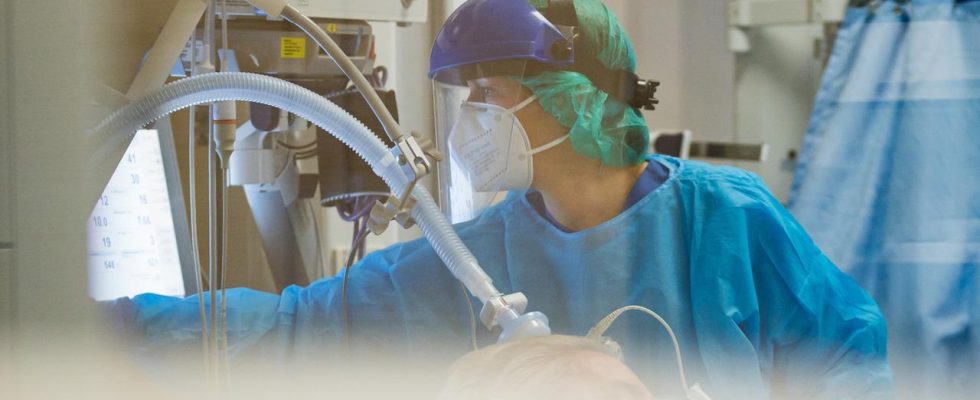Most young doctors have to work more than ten hours a day in clinics. Fatigue leads to more and more incorrect treatments. Every second person suffers from burnout symptoms.
Andrea works as an assistant doctor at the Berlin Charité. She wants to remain anonymous so as not to jeopardize her professional advancement. What she reports makes you sit up and take notice: she sometimes works for more than 24 hours. It is not uncommon for her to experience that she “cannot go to the toilet because we are constantly bombarded with work”.
According to the employment contract, it should be over after 42 hours a week. In fact, Andrea says, in some weeks she clocks up more than 80 hours. Including overtime, which she does not write down at all. Her superiors “advised against” this with a view to her professional advancement.
Health heavily affected
In addition, there would be on-call times, which according to Andreas are not officially considered regular working hours. According to the collective agreement, she is only allowed to work half the time when she is on call. But their reality is different. She calculated that she was active in such on-call services between 70 and 90 percent of the time.
Apparently many doctors under the age of 35 feel the same way as Andrea. According to a study by the professional association for health services and welfare, 71 percent of those surveyed work more than 48 hours a week. According to a survey by the Marburger Bund doctors’ union, 20 percent of doctors work more than 60 hours a week.
Every second person has burnout symptoms
Affected doctors report that they often cannot do things that they often advise their patients to do – reduce stress, eat healthily, take care of themselves. And that has consequences: According to the cited study by the professional association for health services and welfare, almost 64 percent of those questioned answered that their health was under strain.
And 56 percent, i.e. more than every second person, reports burnout symptoms. According to the study, means a “significant health hazard under current working conditions.”
Many doctors under influence of medication
Professor Reinhard Strametz from the Institute for Patient Safety in Wiesbaden can confirm this. In order to withstand these loads, many doctors would work under the influence of medication. That is bad for the doctors, but also “a threat to patient safety”.
In fact, a steeply increasing error rate is another consequence of working long hours. The Federal Institute for Occupational Safety and Health has evaluated the international research results. According to this, the frequency of errors increases significantly after just eight hours of work a day and doubles after the twelfth.
“Far too often we overlook diagnoses or initiate therapies too late,” reports an assistant doctor at the Charité, who wishes to remain anonymous, to plusminus. If an emergency is not recognized in time, it can also be fatal.
Clinic heads and the federal government see no problem
The Charité does not give a specific answer to questions about the working hours of residents. The reason: they do not know those affected. In principle, the clinic writes, it adheres to legal requirements.
The Federal Ministry of Health refers to the collective bargaining partners. An employers’ association that was interviewed, like the Charité, denies that there would be such hourly workloads. The Marburger Bund, the largest advocacy group for doctors, emphasizes that on-call services are actually strictly regulated.
However, there are no controls by the responsible state authorities, probably due to a lack of money and staff. The Marburger Bund demands that the state offices have to check more frequently so that the abuse of on-call services is curbed.
Long working hours are a burden healthcare system
The studies mentioned confirm the need for action. Lots of overtime and on-call duty puts a strain on clinicians’ health and job satisfaction. This also leads to treatment costs for the doctors themselves.
At the same time, according to a survey by the Marburg Association, every fourth doctor is considering changing careers. In view of the shortage of doctors in clinics, this is alarming news.
In addition, according to the Marburg Association, more than 60 percent of medical graduates are female. Whereby women in Germany are still mainly responsible for family work. Weekly working hours of 50 and more hours are often reason enough for women who want to have children to look for alternatives outside of the clinics.

